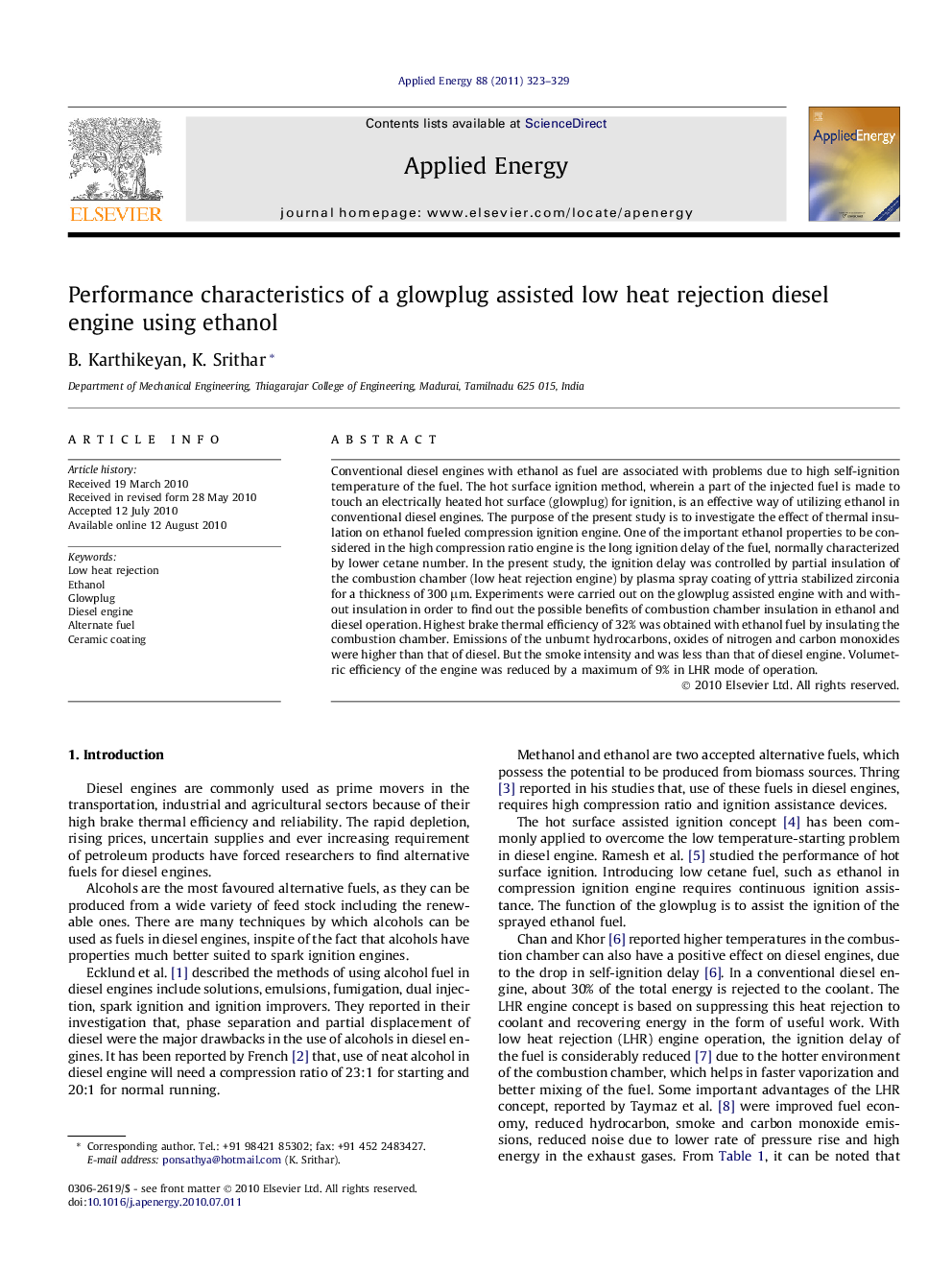| Article ID | Journal | Published Year | Pages | File Type |
|---|---|---|---|---|
| 244444 | Applied Energy | 2011 | 7 Pages |
Conventional diesel engines with ethanol as fuel are associated with problems due to high self-ignition temperature of the fuel. The hot surface ignition method, wherein a part of the injected fuel is made to touch an electrically heated hot surface (glowplug) for ignition, is an effective way of utilizing ethanol in conventional diesel engines. The purpose of the present study is to investigate the effect of thermal insulation on ethanol fueled compression ignition engine. One of the important ethanol properties to be considered in the high compression ratio engine is the long ignition delay of the fuel, normally characterized by lower cetane number. In the present study, the ignition delay was controlled by partial insulation of the combustion chamber (low heat rejection engine) by plasma spray coating of yttria stabilized zirconia for a thickness of 300 μm. Experiments were carried out on the glowplug assisted engine with and without insulation in order to find out the possible benefits of combustion chamber insulation in ethanol and diesel operation. Highest brake thermal efficiency of 32% was obtained with ethanol fuel by insulating the combustion chamber. Emissions of the unburnt hydrocarbons, oxides of nitrogen and carbon monoxides were higher than that of diesel. But the smoke intensity and was less than that of diesel engine. Volumetric efficiency of the engine was reduced by a maximum of 9% in LHR mode of operation.
